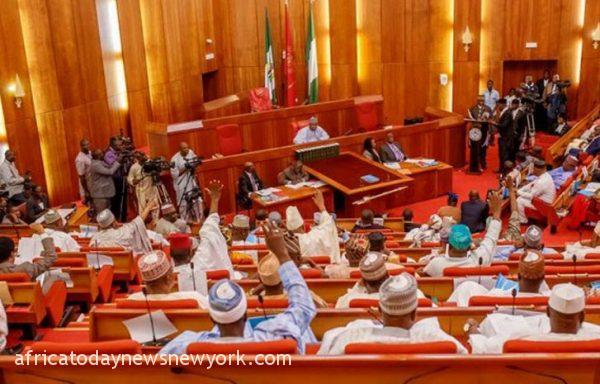The Nigerian Senate has passed the Electricity Bill, 2022 on Wednesday and they have also revealed that the bill’s passage was sequel to the consideration of a report by the Committee on Power.
Senator Gabriel Suswam (PDP, Benue North East) who was the Chairman of the Committee had in his presentation, revealed that the bill seeks to provide an ideal legal and institutional framework which would be used to leverage on the modest gains of the privatisation phase of the electricity sector in Nigeria amongst other things.
Read Also: Sallah Break: Nigerian Senate Adjourns, To Resume July 19
He had also added that when signed into law, the bill would improve the utilisation of generated power through increased investments in new technologies to enhance transmission and distribution of generated power to minimise aggregate value chain losses.
According to the lawmaker, the piece of legislation would “reinvigorate the Institutional framework for the reform of the Nigerian Electricity Supply Industry (NESI) initiated and implemented by the Federal Government.”
He disclosed that the provisions of the Bill seek to promote policies and regulatory measures that would ensure the expansion of power transmission networks in Nigeria to address any imbalance in the existing transmission infrastructure.
Suswam had also noted that the bill would stimulate policy and regulatory measures to scale up efficient power generation, transmission and distribution capabilities of the sector; as well as address technological limitations and outdated infrastructure that are responsible for value chain losses.
The Senate President, midway through consideration of the bill, sought to know the role and operational capacity of banks that had taken over distribution companies (discos) indebted to them.
Responding, Senator Suswam explained that the take-over of entities (Discos) by banks was duly carried out in collaboration with the Nigerian Electricity Regulatory Commission (NER) and Bureau of Public Enterprise (BPE).
According to him, there was a transitional process put in place during the take-over of the Abuja Electricity Distribution Company (AEDC) by the United Bank for Africa (UBA) which would have been used to ensure efficiency in service delivery.
He had also noted that such a transitional process usually involves the invitation of new investors to scale up generation and distribution capacities.
